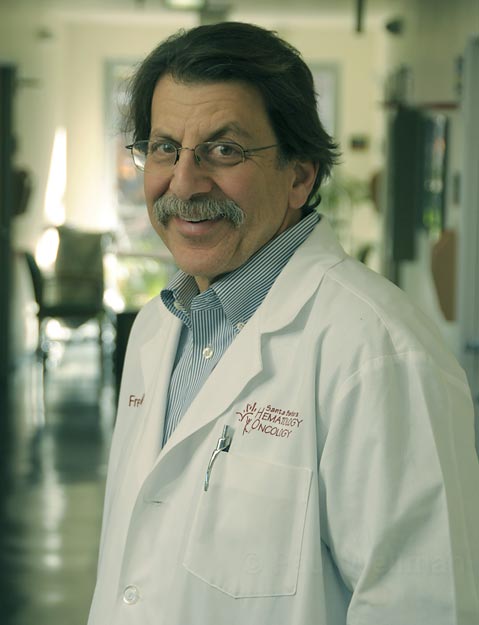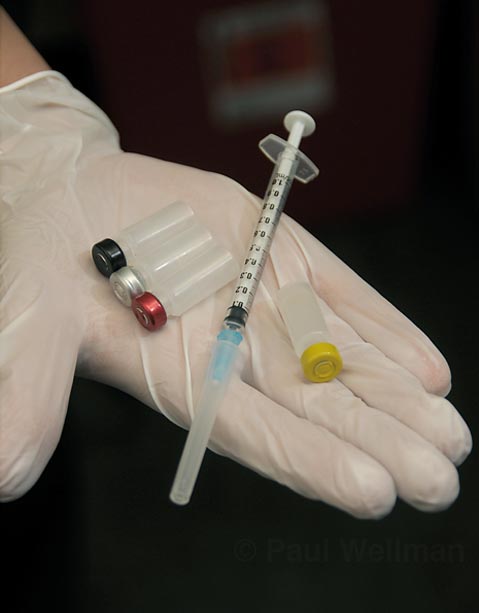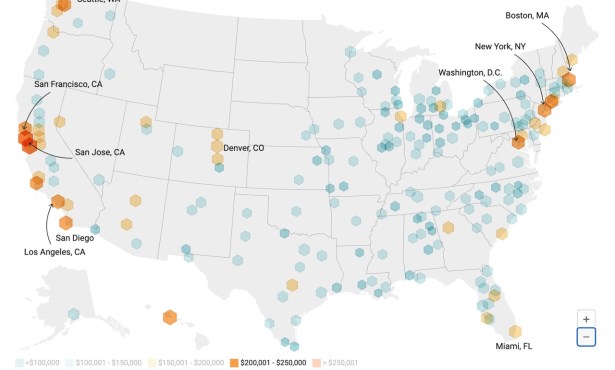Hope on the Horizon
Groundbreaking Lung Cancer Vaccine Research Set to Start in Santa Barbara
No type of cancer kills more men and women each year than lung cancer, but, if all goes well with a clinical trial set to commence at the Cancer Center of Santa Barbara later this month, doctors around the world may soon have a potent new weapon in the war against the deadly disease. After more than 20 years of development, a lung cancer vaccine called Lucanix is slated to begin its Phase III clinical trials-the final step before seeking FDA approval-at some 60 research centers around the world. Even better, after achieving glowing results with virtually no negative side effects in earlier trials, hopes are running high for the groundbreaking treatment. As Dr. Fred Kass, director of research and wellness at the Cancer Center, put it this week, “Cancer vaccines have been on the horizon for a long, long time. That we are now at this point with one and doing it here in Santa Barbara is : well, it is pretty amazing.”

According to Kass, also a practicing physician with the Santa Barbara Hematology Oncology Medical Group, Lucanix is an injectable vaccine that, in short, works to use your own immune system to fight off the formation of non-small cell lung cancer. (The vast majority of all lung cancer cases are diagnosed as non-small cell cancer, as opposed to small cell cancer). Much like a traditional flu vaccine, the treatment is essentially an injection of dead cells, initially derived from four different strains of living lung cancer cells, that are artificially aged so they express their complete properties. In other words, the cells are designed to trick your body into putting up a fight, and thus, when the real thing begins to form, better prepare you to hold off an advancement of the disease. Though not meant for every lung cancer patient-the trial is geared solely for people with advanced, inoperable, non-small cell lung cancer that has already been temporarily stabilized by either chemotherapy, radiation, or a combination of the two-the vaccine will theoretically provide two things that are invaluable for otherwise terminal patients: time and quality of life. In fact, according to data from Phase II clinical testing, patients on Lucanix lived on average nearly 16 months longer than those without the vaccine. “We are not at the stage where this vaccine will cure lung cancer,” said Kass, “but what this trial means to me, even if it doesn’t work as well as people hope it does, is that we finally got a vaccine that works for cancer.”

The trial, which already has one person enrolled here in Santa Barbara, is open to all people over age 18 and under age 75 who meet the advanced stage disease presentation and treatment status requirements (i.e., chemo and radiation have concluded for the time being); it has a total limit of 506 participants. Once signed up, people will get a monthly shot of either Lucanix-which needs to be kept at a chilly minus-80 degrees Fahrenheit until the inoculation is prepared less than an hour before injection-or a placebo in concert with close monitoring by physicians who painstakingly document every step of the treatment via blood tests, x-rays, etc. Here in Santa Barbara, that job will belong to Kass and the full-time research support staff at the Cancer Center, the latter providing the data-crunching personnel who make the whole process possible. Things will continue in this manner for at least 18 months or until the patient’s cancer begins to grow again, whichever comes first.
The hope is that a concrete degree of effectiveness can be determined by observing a trend between how long it takes placebo recipients to get sick again versus the people getting the actual Lucanix dose. Acknowledging the less-than-ideal reality for trial participants who are stuck with a placebo at an ¼ber-critical time in their life (for this trial, patients on Lucanix will outnumber those on a fake cocktail by a 2 to 1 margin), Kass explained that a “monitoring committee” will be keeping close tabs on patient status updates in order to ensure that all trial participants will have access to the drug if it becomes apparent that it is effective. “In clinical research, [Phase III trials] are really where the rubber meets the road : Using a placebo versus vaccine comparison is the only way we will know if the vaccine works,” summed up Kass.


